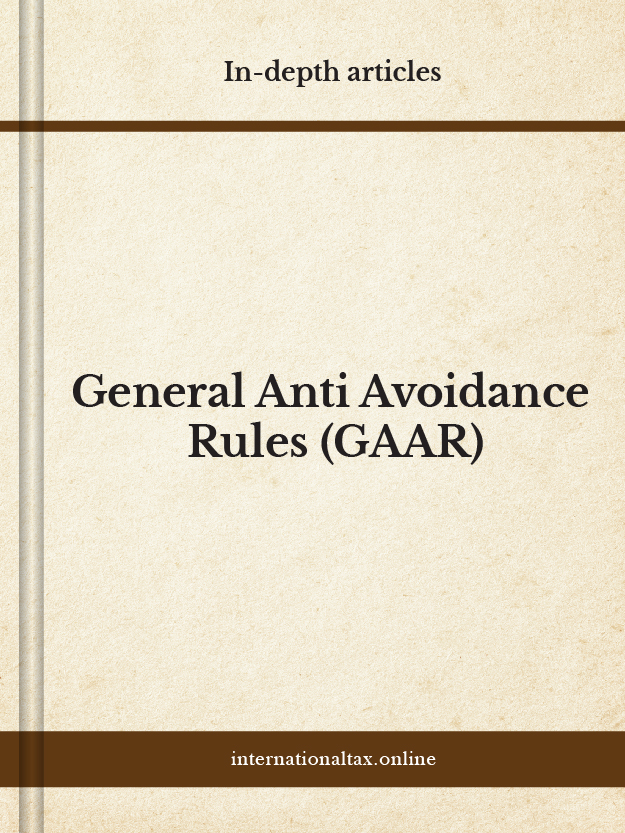
Dr. Mehta has extensive work experience on various matters and issues involving the General Anti Avoidance Rules (GAAR). Dr. Mehta has written several in-depth articles on the GAAR, including the following:
- GAAR: A spotlight on the trigger events for application of statutory GAAR. Link
- Can GAAR apply in treaty shopping cases? Can taxpayers invoke the Canadian court's landmark decision to defend against the PPT clause in post-BEPS era? Link
- Canadian Landmark Decision: Application of GAAR denied in a tax treaty situation. Link
- Legal systems: Impact on tax-driven transaction structures. Link
- Could GAAR apply if post-tax income from a foreign investment was higher than (hypothetical) post-tax income from domestic investment? Link
- The Canadian Supreme Court's landmark decision on principles for interpretation of statutory GAAR and abusive avoidance transactions. Link
- The New Zealand Supreme Court's landmark decision: non applicability of SAAR did not preclude applicability of GAAR in a restructuring transaction. Link
- A landmark case of the Canadian Supreme Court on 'series of transactions'. Link
- The Canadian Supreme Court's landmark GAAR case on interpretation principles, tax benefit, and burden of proof. Link
- An interesting Australian GAAR decision on 'arrangement' and 'tax benefit'. Link
- Should the main purpose be determined subjectively or objectively? Link
- The General Anti Avoidance Rules (GAAR) from the global perspective. Link
- An interesting South African judicial precedent on sale of shares, dividend stripping, and applicability of GAAR. Link
- Could conversion of a partnership firm into a company trigger GAAR? Link
- The timing issue: the 'main purpose' behind an 'avoidance scheme' must be ascertained when the scheme was formulated, or when it was implemented? Link
- An interesting GAAR decision from New Zealand on 'permissible tax advantage'. Link